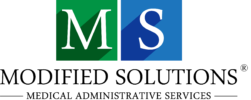Patients Are Fed-up
Surprise medical billing has become a nuisance that extends beyond the traditional concept of being an "out of network" issue.
Patients are also reporting unexpected medical bills for services at in-network/participating entities, and their cry for help is no longer falling on deaf ears.
What is Surprise Medical Billing?
Surprise medical billing is balance billing patients for services not paid by insurance carriers. If a provider feels that adequate payment was not achieved for services rendered, the common practice has been to bill the patient for the outstanding balance.
Patients are unaware that medical bills are mounting because they have diligently sought services at an in-network facility. The catch is that they unknowingly receive treatment from healthcare professionals who are out of network. This includes patients who are serviced by providers who haven't been given prior authorization from the insurance carrier to treat them.
Federal Regulations Now Underway
It's safe to say that some of the federal laws will be changing, and your billing practices will be affected. Several initiatives are now being made at the federal level to push legislation to end surprise medical billing—the goal, protecting patient rights.
.
Combat Surprise Medical Billing
Surprise medical billing has been a common practice for some professional healthcare practices for years. Although the new congressional efforts are being addressed primarily for facility balance billing, there is a direct correlation of how this will affect balance billing across all healthcare spectrums, including private practices.
You can do several things to ensure that your practice is never the cause of this issue for your patients. Below are a few suggestions that I recommend:
1. Educate Your Staff. Your office's internal collection practices should be held as the standard for business execution. Give them the resources they need to execute your collection process efficiently, within compliance, and implement proper protocol when servicing your patients.
2. Secure SIGNED ABNs from your patients when suggesting services that may not be payable by Medicare and other insurers.
3. Be thorough in your consultations with your patients. Your reputation is at stake. Your job as a provider is to safeguard the rights of your patients. Guarantee that patients have a sound understanding of what services could increase their out-of-pocket costs even AFTER they have signed an ABN.
4. Deploy timely invoicing. This is the most crucial aspect. There's nothing worse than receiving a bill 2 to 3 years after the initial visit. Understandably, different factors can cause a delay in billing. However, always do your best to strive for fair billing practices.
5. Align your practice with an experienced medical billing company that is extensively abreast of healthcare regulation's current affairs, which directly affect your revenue cycle management. This is extremely important because adhering to billing compliance policies is unavoidable, and you lessen the risk of incurring penalties and losing contracts and facility affiliations for your practice later down the line.
Critical Thinking | Applying Action
- Have you identified any causes that perpetuate this issue in your practice?
- What other changes can be implemented among your staff to help alleviate surprise billing for your practice?
Since 2001, Simone Harris has developed a solid foundation in administrative healthcare services and business development. She has 20+ years in the healthcare sector and is the Executive of Business Operations and Compliance Officer. Modified Solutions has professional medical administrative resources firmly rooted in compliance, integrity, and experience. To learn more, visit https://modified-solutions.com/.

